The stock market is a big place to see and understand and plays a very important role in the economy of a nation. Basically, a stock market is a place …
Finance
The Finance category page is an invaluable resource for anyone interested in finance. It is a central hub for information on various topics, including personal finance, investments, banking, and more. This page is a must-visit for those who want to stay up to date with the latest developments in the financial world.
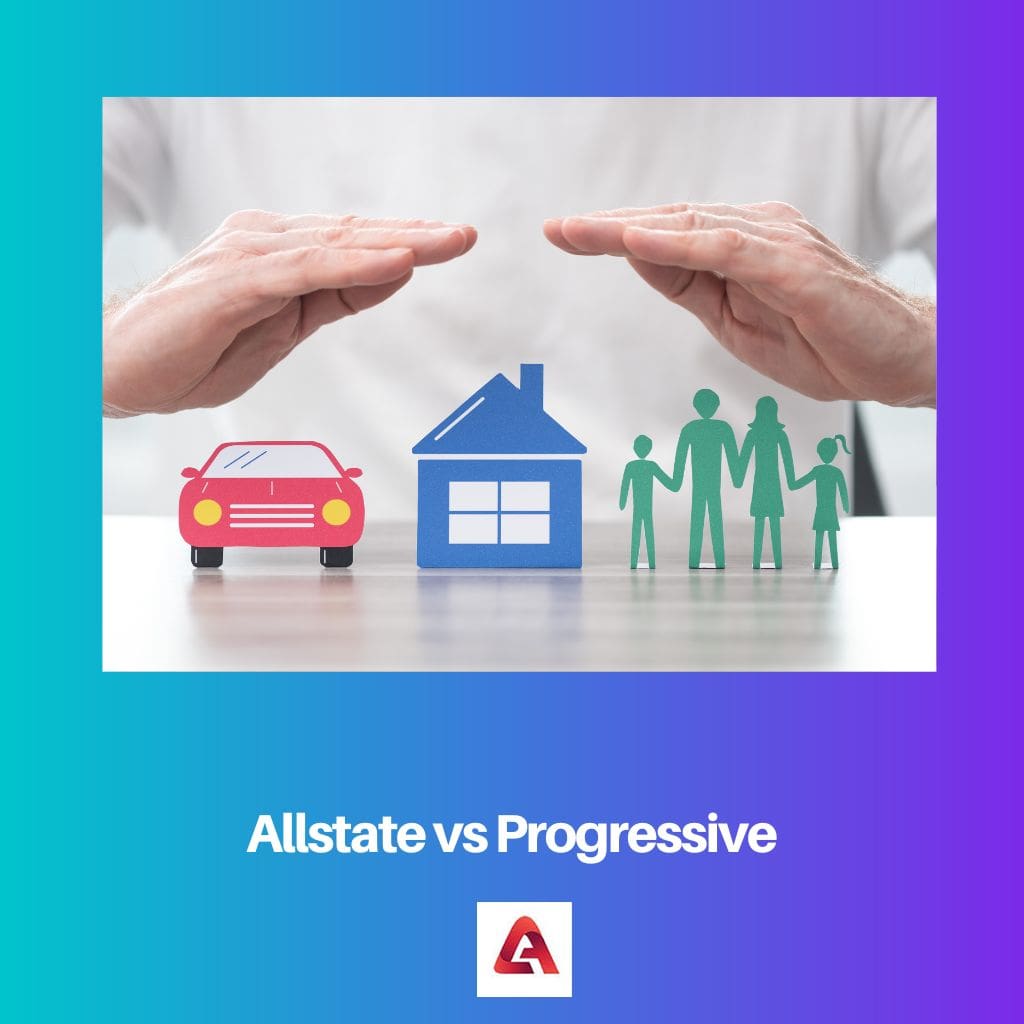
Allstate vs Progressive: Difference and Comparison
Insurance is a basic thing that is adopted or taken by the majority of people. The procedure of applying for or selecting an insurance company can be quite confusing. Allstate …
Accidental Death vs Life Insurance: Difference and Comparison
Accidental death and life insurance are two types of coverage that may be offered by a company. It is important to know the difference between these two before you make …
Relevant vs Differential Cost: Difference and Comparison
In today’s market, we have to consult and make an informed decision regarding the entire business procedure, which also includes the financial aspects regarding the ideas we want to develop …
Open-Ended vs Closed-Ended Mutual Funds: Difference and Comparison
We hear the term ‘mutual funds’ being used in bank advertisements regarding loan policies, well, it is a financial tool that collects money from many people and invests it in …
GoFundMe vs PayPal: Difference and Comparison
In the era of modern technology and advancements, we no longer use the traditional method of paying cash by hand. We rather use our mobile phones and cards to pay. …
Debit vs Credit: Difference and Comparison
We live in an online world where everything happens completely online. In all our transactions, everything happens with the help of a simple card. There are two cards that can …
Funding vs Financing: Difference and Comparison
Funding and financing are the terms used for business purposes. These terms might sound similar but are different from each other. Funding is a free service, but in financing, repayment …
Monetary Policy vs Fiscal Policy: Difference and Comparison
The economy of any country is the most important topic to be discussed. Any economic decision of the country will affect its stability as well as its development and growth. …
Fixed Rate vs Floating Rate of Interest: Difference and Comparison
Taking a home loan is one of the biggest decisions anyone could make in their life. Investing in a good home is one of the most crucial aspects of living …
Suit Jacket vs Sports Coat: Difference and Comparison
A suit jacket or sport coats are both wearable items. They come under men’s clothing. Both these pieces are great for formal wear. They are worn at formal meetings, parties, …
W2 vs W4: Difference and Comparison
The forms we deal with to pay the tax may sound the same. But they are different in their ways. The contours will fill to pay the tax and for …
Euro vs Dollar: Difference and Comparison
Euro and dollar are two of the most widely used currencies in the world at present. While both serve as means of exchange, they are not the same in literal …
Bi-Weekly vs Bi-Monthly: Difference and Comparison
Just as the word in itself suggests, Bi-weekly and Bi-monthly are two forms of payroll systems. This system of payroll is used in different organizations to provide the salary to …
a Controller vs a Comptroller: Difference and Comparison
There are different posts and jobs for handling the financial activities of a firm or organization. Proper knowledge about these is required as only then can you apply and be …
Pension vs Gratuity: Difference and Comparison
Money is very important for living. Different countries have their own currencies, which are sequence divided and arranged in order. When people work for someone, they earn money to buy …
Root Car Insurance vs Geico Insurance: Difference and Comparison
Car insurance is essential for every driver and car. Car insurance protects a huge expense by investing regularly. If any accident occurs, it provides coverage over all the injuries and …
Payroll vs Income Taxes: Difference and Comparison
Tax is an amount or fixed fine that an individual has to pay to the government of the country. With this amount, the government provides service to the citizen in …
Wealth vs Income: Difference and Comparison
The amount of money we have, speaks more than us. But it is not always about money. The love you earn and the people you have are also your Income …
Real Estate vs Property Tax: Difference and Comparison
Tax is a financial charge which is charged by the government so that it can put that money or spend it on public expenditure and welfare. Tax is imposed on …
Amortization vs Depletion: Difference and Comparison
When we talk about resource management as well as cost allocation for ethereal assets, we take into account terms like; amortization and depletion. Very commonly used by commerce and management …
Secured vs Unsecured Bond: Difference and Comparison
The critical distinction between secured and unsecured bonds is that a secured bond is a sort of bond that is secured by promising a particular resource as a guarantee by …
Secured vs Unsecured Credit Card: Difference and Comparison
There are two types of credit cards depending on a person’s credit score. These two credit cards are namely, Secured credit cards and Unsecured credit cards. Though these are both …
Geico Mechanical Breakdown Insurance vs Honda Care: Difference and Comparison
Having vehicle protection saves you against the monetary misfortune you may confront if your vehicle is destroyed in a mishap or, more awful, taken. In addition to the fact that …
Stocks vs Mutual Funds: Difference and Comparison
Everyone needs to earn to survive and live a good life. Well, to have a good life with a sustainable future. Earning along with saving is important, and from that, …
PayPal vs Quadpay: Difference and Comparison
After the world adopted digital payment, payment plans through online payment businesses such as PayPal, Quadpay, RazorPay, Klara, AfterPay, and Sezzle have become popular. Many online eCommerce sites accept this …
Quid vs Pence: Difference and Comparison
British currency or the UK currency, like many nations, has decimal currency. And for an individual to, understand the currency can be a bit difficult. Quid vs Pence The difference …
GDP vs GNP: Difference and Comparison
In the present-day world, it is not uncommon to stumble across these two words, GDP and GNP, often. GDP, which stands for Gross Domestic Product. GDP vs GNP The difference …
PayPal vs Venmo: Difference and Comparison
Nowadays, smartphones are providing the most advanced features to users. Online payments are getting popular with the advancement in smartphones. Various companies have launched their applications and wallet-based platforms to …
Harvest vs Divest: Difference and Comparison
Techniques such as harvest and divest are utilized to account for the fuse of current and future market development openings. Harvest is the usage of income from the offer of …
Equity vs Stocks: Difference and Comparison
Either in the Corporate world or Stock market exchange, Equity and Stocks are used as a unit of measurement of ownership of anybody in the respective company. Though both the …
Geico Auto Insurance vs Progressive: Difference and Comparison
It is strongly recommended that you obtain quotations from multiple insurance providers to choose which policy is best for you. Geico Auto Insurance and Progressive are two well-known automotive insurance …
Purpose Bitcoin ETF vs QBTC: Difference and Comparison
For the past 30-40 years, investment has emerged as the main source of income for most people and organizations. It generates the most part of the earnings in the entire …
Allstate vs Farmers: Difference and Comparison
Allstate and Farmers, car insurance providers, are both very well-known worldwide. Because of this, as both of them play an important role in the industry and fall into the same …
Principal vs Interest: Difference and Comparison
There exist several financial areas that engage in a lot of transactions with various parties and people in general. The world of commerce has immensely developed, and many changes have …
NEFT vs RTGS: Difference and Comparison
Electronic transfer of money is growing rapidly due to its speed, safety, simplicity, and ease with the progress of technology. NEFT vs RTGS NEFT (National Electronic Funds Transfer) is a …
Elephant Insurance vs GEICO: Difference and Comparison
Insurance is an agreement that bounds the insurer, and the insured enter into a legal agreement. The agreement promises to the insured person that in the happening of any contingency, …
Stimulus Check vs Income: Difference and Comparison
Stimulus checks and income might be related to each other but are not close. Income, as anyone can say, is a fixed source of money you get by providing a …
Shareholder vs Bondholder: Difference and Comparison
Investing is very important for increasing income. We are all aware of the fact that savings cannot increase money, the amount remains as it is, but by investing the same …
Shares vs Debentures: Difference and Comparison
Shares and Debentures are two of the most common methods of raising capital funds for a new venturing company or a company looking for an expansion or upgrade. Selling out …
Static vs Flexible Budget: Difference and Comparison
A budget is an official statement of the estimate of income and expenditure during a fixed period based on prior records and plans. A budget can be made by a …
Plutus vs Crypto.com: Difference and Comparison
As everything has become online, transactions have also become very popular. Now, most people carry digital cash with them instead of carrying real cash. Because carrying real cash can be …
NPV vs ROI: Difference and Comparison
Financial metrics are used to calculate and see the result of the investments or the cash flow for different types of institutions. Some of them are more commonly used than …
Grange Insurance vs Geico: Difference and Comparison
Grange Insurance and Geico are two of the most popular insurance companies in the United States. They both offer a range of services, such as auto, home, life, health and …
Harley Davidson Insurance vs Geico: Difference and Comparison
Some people consider their bikes no less than a family member. They maintain and protect it just like they do for human beings. But sometimes, these vehicles suffer damage, and …
Uphold Crypto vs Crypto.com: Difference and Comparison
Cryptographic money is one of the renowned terms that is utilized prominently in the post-human world. It’s anything but an advanced resource wherein the cash or coins are put away …
Phemex vs Crypto.com: Difference and Comparison
There are many digital currency trade stages accessible nowadays. The vast majority of them are concentrated and worked by the stage proprietors. Simultaneously, a couple of decentralized stages work with …
Crypterium vs Crypto.com: Difference and Comparison
Usually, physical wallets, such as a purse, handbags, and pouches, are where we store our money, then what about the digital or cryptocurrency entity. In that case, either Crypterium or …
New Jersey Manufacturers Insurance vs GEICO: Difference and Comparison
In today’s rapidly moving world, a larger proportion of the population has automobiles. Hence, it becomes necessary to protect one’s cars, and one such way is by getting them insured …
Komodo vs Cardano: Difference and Comparison
In today’s world, people start investing in digital currency or cryptocurrency. In the market, various cryptocurrency is available that fascinate traders to invest their money in the purchasing and selling …
Trust Wallet vs Crypto.com: Difference and Comparison
Cryptocurrency is one of the famous terms that is used very popularly in the post-human world. It is a digital asset in which money or coins are stored in the …
TRON vs Cardano: Difference and Comparison
TRON and Cardano are both blockchain platforms for change-makers and creators. Hence, as both of these platforms have a huge role to play in bringing about a positive change in …
Zego vs INSHUR: Difference and Comparison
Insurance is a must these days, especially for professional workers who work under uncertain platforms. It is a must for automobile industry regulators. But opting for insurance is based on …
BlockFi vs Coinbase: Difference and Comparison
Interest accounts for digital assets like Bitcoin, Ethereum and stablecoins like USDC and GUSD make it feasible to earn relatively passive income. BlockFi and Coinbase are cryptocurrency exchanges established in …
AllState vs Geico Car Insurance: Difference and Comparison
Car insurance is mandatory for drivers in almost all the states in the world. If an individual does not have car insurance, he/she is liable to pay all the penalties …
Yield to Maturity vs Rate of Return: Difference and Comparison
The practice of allocating resources, money, with the expectation of gaining a profit later. One can make their investment by starting a business or by purchasing an asset, and whatsoever …
YouHodler vs Crypto.com: Difference and Comparison
Digital assets and digital money or plastic money have overtaken the entire market from cash transactions in the global market. Now, everyone prefers to make payments online than going to …
Uniswap vs Crypto.com: Difference and Comparison
There are quite a few cryptocurrency exchange platforms available these days. Most of them are centralized and operated by the platform owners. At the same time, there exists a few …
Luno vs Crypto.com: Difference and Comparison
The cryptocurrency reached new heights in 2009 when Bitcoin (BTC) became the first decentralized digital currency worldwide. After this, it has seen massive and rapid growth, especially in recent years. …
Condo Insurance vs Renter’s Insurance: Difference and Comparison
Insurances for your property and assets are extremely important to be on the safer side. Especially the houses and buildings that we own also need to be safely insured. Based …
Crypto.com vs Wealthsimple: Difference and Comparison
Investing the savings helps to secure the future. There are traditional financial service-providing companies that provide various investment options but are time-consuming, only support fiat currencies, and charge higher fees. …
Crypto.com vs Revolut: Difference and Comparison
Crypto.com is a cryptocurrency company, and Revolut is a global financial application. Crypto.com began its services in 2017, which offered payment cards, and Revolut began its services in 2015 by …
Cardano Byron vs Shelley: Difference and Comparison
Cardano Byron and Shelley were created to optimize decentralization. Shelly was designed to make the process smooth and have a low-risk transition. There should not be any risk factors related …
TenX vs Crypto.com: Difference and Comparison
With time and energy, human minds evolve as well, leading to the further evolution of technology and its advancements. People are switching from barter systems to official cash distribution, online …
Wirex vs Crypto.com: Difference and Comparison
With evolving times and technology, the digital world is also evolving. Hence keeping track and walking parallel with the current scenario is important. Hence, people must be fully aware of …
Crypto.com MCO vs CRO: Difference and Comparison
Crypto.com is a decentralized payment platform that aims to empower humans and increase crypto transitions. It is a platform that overcomes blockchain usability and accessibility challenges. They developed an easy-to-use …
Kebab Finance vs PancakeSwap: Difference and Comparison
Bitcoins and digital currencies are gaming popularity and trust of people over time. These bitcoins and cryptocurrencies are not physical. Kebab Finance vs PancakeSwap The difference between Kebab Finance and …
Swipe.io vs Crypto.com: Difference and Comparison
Swipe.io and Crypto.com are two different platforms that deal in cryptocurrencies. They differ in terms of application and are headquartered in different locations. Swipe.io vs Crypto.com The difference between Swipe.io …
Sezzle vs Quadpay: Difference and Comparison
In recent years, payment plans through businesses such as Quadpay, Klara, AfterPay, and Sezzle have become increasingly popular. Sezzle vs Quadpay The difference between Sezzle and Quadpay is that Payment …
Crypto.com vs Blockfi: Difference and Comparison
Decentralized exchange platforms allow cryptocurrency users to trade their digital assets over the network without any intermediary. The user stores the cryptocurrency in the platform and buys or sells goods …
Polka vs Cardano: Difference and Comparison
There exist several options by which one can invest their money depending on their plans and holdings. There are several options with different processes and procedures. Cryptocurrency is one of …
Tenant Insurance vs Renter’s Insurance: Difference and Comparison
Insurance provides in way protection from loss. A person, company, or entity that provides insurance are known as Insurer, and one who gets the benefits of purchase and insurance is …
PDAX vs Crypto.com: Difference and Comparison
There are several possibilities available nowadays for investing and growing one’s money. Depending on one’s intentions, there are numerous options for investing money. This is a comment by Marc Kenigsberg, …
Rarible vs Enjin: Difference and Comparison
Non-fungible Tokens are a result of the new Blockchain era (NFT). The tendency these days is to create and buy digital assets. NFTs are a type of data unit that …
JulSwap vs PancakeSwap: Difference and Comparison
DeFi (Decentralized Finance) is a term used to describe financial applications built on blockchain technology and the Ethereum network to eliminate intermediaries. Smart contracts are executed for every transaction to …
Blockfi vs Binance: Difference and Comparison
Today there exist numerous options through which one can invest and grow their money. One can opt to invest their money in several ways depending on their plans. These several …
Cardano vs Stellar: Difference and Comparison
Cryptocurrency is a virtual currency used to buy goods and services online. The cryptocurrency uses blockchain technology that maintains a distributed ledger, ensures the security of payments through cryptography, and …
Rarible vs Mintable: Difference and Comparison
The new era of Blockchain has given rise to Non–Fungible Tokens (NFT). Creating and Buying digital assets is the trend these days. The NFT is a unit of data that …
Renter’s Insurance vs Contents Insurance: Difference and Comparison
Compensation for the losses due to accidental fire or any other damage is worthy, and we call it Insurance. While this is a long-term attribute, some insurances are also available …
PDLW vs Renter’s Insurance: Difference and Comparison
Insurance is a contract agreement between the insurance company and the individual insured. It protects the individual from financial losses that may occur due to accidents, catastrophes, and other unintentional …
Blockfi vs Gemini: Difference and Comparison
In comparison to blockfi, Gemini enables You to get interested in more cryptocurrencies. However, they can lend your money through unsecured credit, while blockfi has over-collateralized your credit. Some of …
Renter’s Insurance vs Homeowners: Difference and Comparison
Insurance gives relief or satisfaction to a person that if anything goes wrong, there’ll still be hope to rectify it. Insurance is defined as where a company guarantee to provide …
Renter’s Insurance vs Security Deposit: Difference and Comparison
Be it a renter or a landlord, everyone’s safety matters. Several insurance policies and security deposits are there in the market to save the landlords from fraudulent tenants and to …
Renter’s Insurance vs Umbrella Policy: Difference and Comparison
We live in a world where anything can happen out of the blue to us. We can experience things that we least expected and never know what we might face. …
Cardano Daedalus vs Yoroi: Difference and Comparison
Cryptocurrency is the new digital currency available and encapsulates the entire global market. They are digital assets that are acquired by individuals and used as a medium of exchange. The …
Land Contract vs Rent to Own: Difference and Comparison
Purchasing a home may appear to be a simple procedure, but it may be time-consuming. Finding a mediator to help you in the process, to search for a home, and …
PancakeSwap vs SushiSwap: Difference and Comparison
The popularity of De-Fi is making way for different De-Fi platforms. PancakeSwap and SushiSwap are both DEZ, which means decentralized exchanges. PancakeSwap and SushiSwap are compared since they both are …
Bitcoin Fund vs Bitcoin ETF: Difference and Comparison
“Every informed person needs to know about Bitcoin because it might be one of the world’s most important developments.” This is a quote by the two-time Nobel Peace Prize nominee …
Stablecoin vs CBDC: Difference and Comparison
The global finance ecosystem is taking a different shape with the advent of cryptocurrencies. With Facebook coming into this line of business with 2 Billion users with them, Bitcoins and …
Stablecoins vs Altcoins: Difference and Comparison
Stablecoins are cryptocurrencies designed to minimize price volatility by pegging their value to a stable asset, such as a fiat currency or commodity. They provide a reliable store of value …
Cardano vs Polkadot: Difference and Comparison
“Blockchain is moving beyond cryptocurrency, and it’s worth paying attention – especially since successful prototypes show that blockchain, also known as distributed ledger technology, will be transformative.” Both Cardano and …
Gold ETF vs Bitcoin ETF: Difference and Comparison
Gold ETFs track the price of physical gold, offering investors exposure to the precious metal without direct ownership. Bitcoin ETFs, on the other hand, mirror the performance of Bitcoin, a …
Jewelers Mutual vs Renter’s Insurance: Difference and Comparison
ewelers Mutual specializes in jewelry coverage, offering comprehensive protection specifically tailored for valuable items like engagement rings. Renter’s insurance, on the other hand, provides broader coverage for personal property, including …
Conceptual Frameworks vs Accounting Standards: Difference and Comparison
Accounting Concepts mean different conventions structured to include a common financial reporting framework. In choosing accounting policies, accountants use professional judgment in order to present their desired customers with fair …
Dividend vs Dividend Yield: Difference and Comparison
In terms of money, when a company earns profit, this profit is distributed to the shareholders of the company, who invested money in their company in the first place. These …
Social Security vs 401k: Difference and Comparison
The employee, when working, is tense during the period after he cannot work, i.e., after retirement. What will happen to how can he afford his expenses and other things? Social …
Return on Equity vs Return on Investment: Difference and Comparison
The two terms, Return on Equity (ROE) and Return on Investment (ROI) belong to corporate finance and accounting. This sector controls the business activities, analyzes the profit and loss, ad …
Return on Equity vs Return on Net Worth: Difference and Comparison
A company uses many ratios and percentages to attain profit and loss and other factors that give information about the business. They are essential for the decision-making of an enterprise, …
Cost of Equity vs Cost of Retained Earnings: Difference and Comparison
An analyst should determine the paths that lead the company to the next stage as a benefit and a reputation. It means the production of income if you claim benefit. …
Coupon Rate vs Interest Rate: Difference and Comparison
Before starting the article, one thing must be made clear here; the coupon rate is different from the interest rate. A coupon rate is an annual interest payment the bond …
Bond Price vs Face Value: Difference and Comparison
To raise funds, governments and corporate companies use the concept of bonds. Face value is the value of the bond when it matures. Face value, or par value, is used …
Coupon Rate vs Required Return: Difference and Comparison
The interest rate paid by the person who issues the bond based on the bond’s face value is called the coupon rate. The periodic interest paid by the person who …
Dividend Yield vs Return on Equity: Difference and Comparison
Money and Finance have many terms, including investments, Returns, financial exchange, stock market, dividends, deposits, shares, Equity shares, Assets, and so on, which are significant ascribes and add to one’s …
Investment Banking vs Asset Management: Difference and Comparison
Management is a very crucial part of the field of banking. But when one talks about Investment banking and Asset management as similar terms, they are on the wrong side. …
Investment Banking vs Mutual Funds: Difference and Comparison
In this economic world, investment banking, as well as mutual funds, play a critical role in a way to favour investors at their best. Both tend to act as financial …
Bond Yield vs Bond Price: Difference and Comparison
Bonds are part of or, say, a unit of corporate securities securitized as tradable assets. Bonds are issued by corporations and are considered fixed-income instruments. Four types of Bonds are …
Bond Yield vs Yield to Maturity: Difference and Comparison
Bond Yield and Yield to Maturity sound similar but differ in real life. Both terms differ significantly despite coming from the background of yield in a bond structure. Bond Yield …
Cost of Debt vs Interest Rate: Difference and Comparison
The financial manager has to keep an eye on the interest rates, inflations, and exchange rates to provide helpful information about the financial market to the board members to make …
Interim Dividend vs Final Dividend: Difference and Comparison
Business organizations distribute a fraction of profits to their shareholders equal to their shares in the organization. The organization creates a dividend policy that guides the board of directors and …
Cost of Debt vs Cost of Equity: Difference and Comparison
An analyst is supposed to determine the paths that take the firm to the next level, either in profit or reputation. If we say profit, it means revenue generation. Companies …
Return on Investment vs Return of Investment: Difference and Comparison
People would wonder what Return on Investment and Return on Investment mean the same, but with a critical difference. Here are the essential points you must come across before knowing …
Bond Yield vs Coupon Rate: Difference and Comparison
Bond Yield and Coupon Rate are used in terms of a bond but differ. Talking about finance, a Bond is a tool that shows the debt of the one issuing …
Return on Equity vs Cost of Equity: Difference and Comparison
Both the term Return on Equity and Cost of Equity includes Equity which is the only thing common between them, and except this, there is no similarity between them both. …
Coupon Rate vs Yield to Maturity: Difference and Comparison
As our elders say, “Savings is the key to living secure life,” Everyone should save money and resources for future generations and secure the bank balance for an upcoming emergency. …
Distribution Yield vs SEC Yield: Difference and Comparison
People are confused with the stock market terms, and two of the most confusing terms related to funds are Distribution yield and SEC yield. They both are connected to a …
Interim vs Proposed Dividend: Difference and Comparison
Dividend involves the part of the earnings of a corporation not kept but paid by the company to its owners, depending on the equity owned by the company, instead of …
Cost of Capital vs Rate of Return: Difference and Comparison
The world of finance is vast, comprising a lot of things like investments, banking, corporate finance, derivatives, metrics, and so on. All of these things are important for running the …
Stimulus vs Tax Refund: Difference and Comparison
Stimulus and Tax refunds are parameters that define an economy’s growth. While both these terms work towards a nation’s taxpayers, they are still a lot different. While the Stimulus comes …
Interest Rate vs Discount Rate: Difference and Comparison
The terms Interest rate and Discount rate are confusing as both charge rates. Most people misunderstood it as the same term. The Discount rate is the interest rate the central …
Current Yield vs Coupon Rate: Difference and Comparison
‘Current Yield’ and ‘Coupon Rate’ are two different terms, but these terms are related to bonds and shares. Many people turn towards other methods like mutual funds, stock market, share …
Dividend Yield vs Dividend Payout: Difference and Comparison
In the share market term, the dividend is the money a company has to pay its shareholders from its profits. It is a kind of reward to shareholders for investing …
Yield to Maturity vs Yield to Call: Difference and Comparison
Nowadays, life has become unpredictable. No one knows what will happen in another fraction of a second, minute, or hour. Therefore, everyone wants to be well prepared to tackle them. …
Dividend vs Interim Dividend: Difference and Comparison
Dividends are a percentage of a company’s earnings that the company does not maintain. Instead, they are allocated to the investors, or shareholders, in proportion to the shares they hold …
Yield To Maturity vs Current Yield: Difference and Comparison
The yield to maturity and current yield are two methods used to calculate a specific bond yield using formulas. Both these methods, which are the current yield and yield to …
Dividend Yield vs Dividend Rate: Difference and Comparison
Share Market or Stock Market has always been a trending hot topic. It is always said that investment in the stock market is risky and totally upon someone’s luck. It …
Dividend vs Long-Term Capital Gain: Difference and Comparison
Investments are the most popular forms of wealth accumulation and expansion. Investments are assets or capital purchased with the intention of income generation. There are various types of investments; the …
Investing vs Saving: Difference and Comparison
Accumulating and building wealth is essential for an individual to secure his financial future. Investing and saving are both economic terms concerning money or assets. Both are interchangeable terms but …
Borrow vs Lend: Difference and Comparison
Study, languages, and subjects have always played an integral part in our lives and helped us grow to think analytically, politically, and critically and raise questions to show our society’s …
Liability vs Expense: Difference and Comparison
Liability refers to financial obligations or debts a company owes to external parties, such as loans or accrued expenses. It reflects the company’s future commitments. On the other hand, an …
Tally vs QuickBooks: Difference and Comparison
Tally is renowned for its simplicity and affordability, catering primarily to small businesses with basic accounting needs. QuickBooks, on the other hand, offers robust features suitable for various business sizes, …
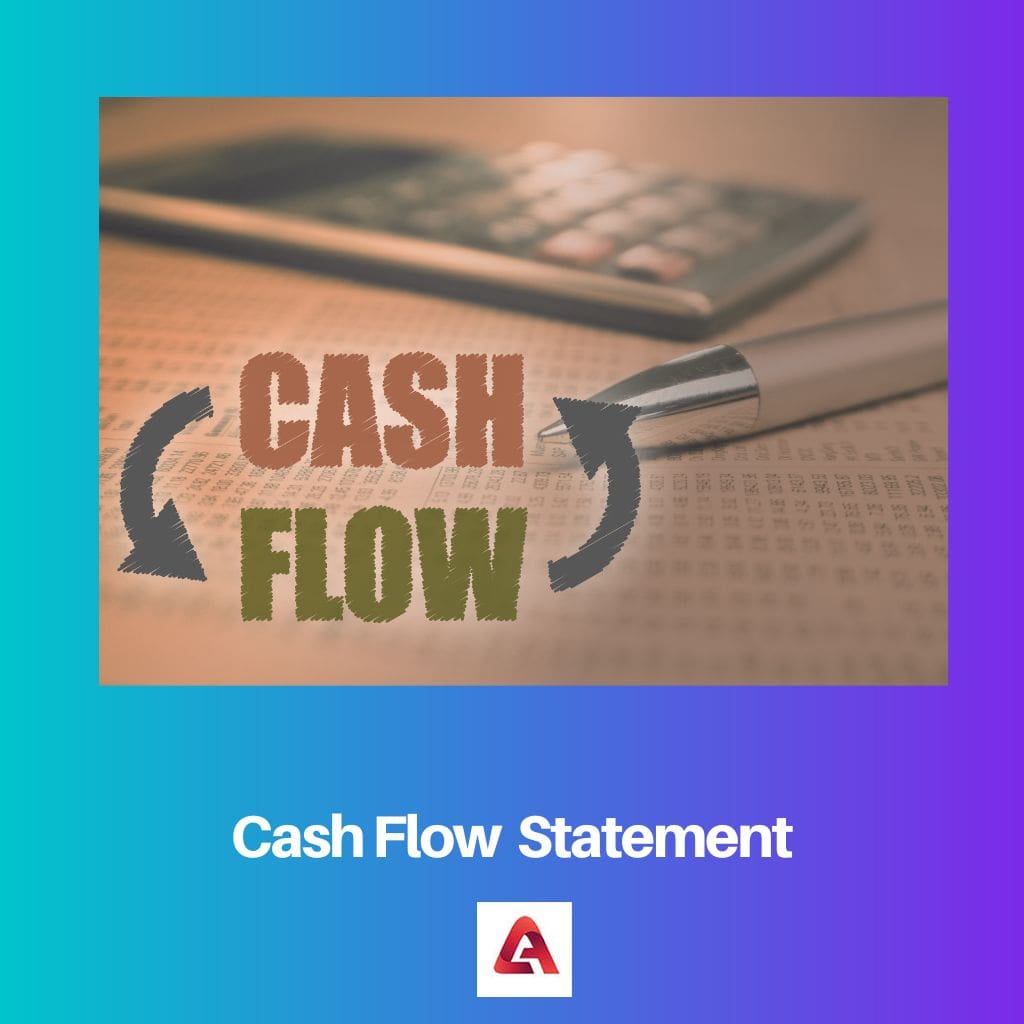
What is Cash Flow Statement? | Definition, Components, Pros vs Cons
The cash flow statement or statement of cash flows is an essential financial accounting tool. It is used along with income statements and balance sheets to analyse the financial position …

What is Audit Plan? | Definition, Preparation, Pros vs Cons
Conducting an audit is a highly tedious job. It comprises several steps, among which preparing an audit plan constitutes the first step. Simply put, it is a scheme comprising approaches …

What is Promissory Note? | Parties, Format, Pros vs Cons
A Promissory Note is one of the many credit instruments issued by a creditor to the debtor as a certificate of assurance that a particular payment will be made by …

What is Stores Ledger? | Definition, Purpose, Pros vs Cons
A store’s Ledger is a document or statement that records the value and quantity of stock items issued and received and their closing balance. It is compared with Bin Cards …
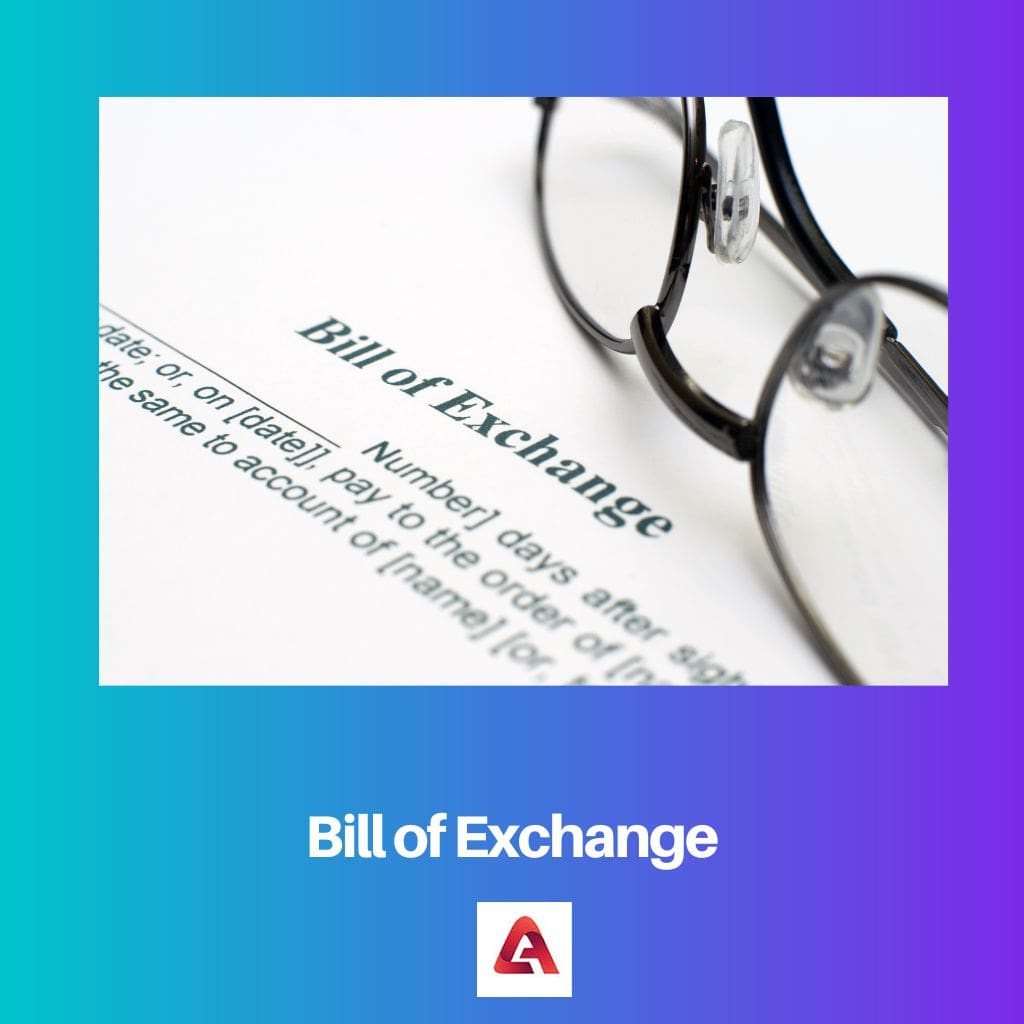
What is Bill of Exchange? | Definition, Working, Pros vs Cons
The exchange of goods can be done for cash or on credit. When goods are traded on credit, the payment is made on a deferred date. In such cases, the …
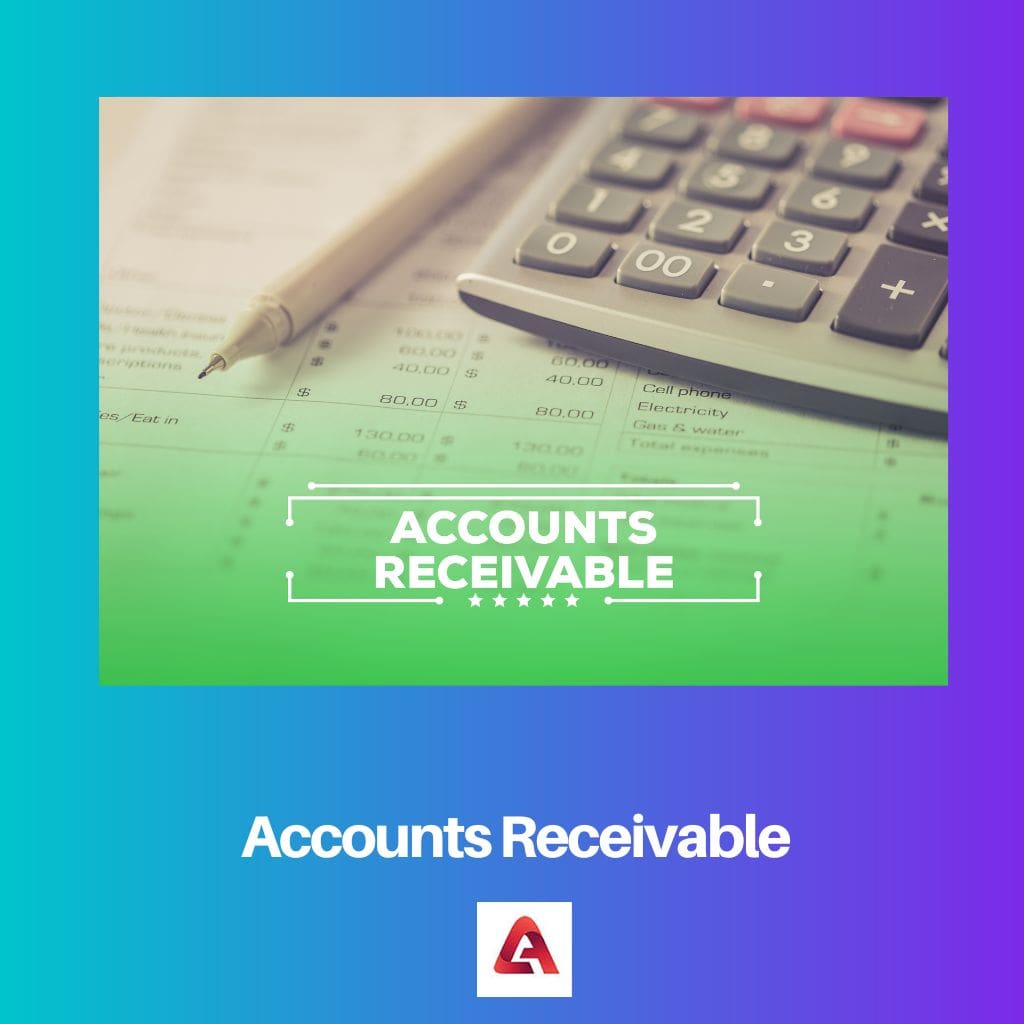
What is Accounts Receivable? | Definition, Working, Pros vs Cons
In this modern age, every business does financial transactions with their customers. In most cases, the customer pays the due amount at the time of the transaction. But sometimes, the …

What is Economic Profit? | Definition, Working, Pros vs Cons
At the time of business endeavour, every entrepreneur and business entity wonders whether the business activity generates appropriate profit or could have done better with another way of business. It …

What is Normal Profit? | Definition, Working, Pros vs Cons
Normal profit is an economic metric reflecting a business’s viability. Normal profit and accounting profit are two different ways of calculation. Before calculating normal profit, we have to know the …

What is Bill Discounting? | Definition, Working, Pros vs Cons
Bill discounting is a financial instrument which allows buyers to procure goods or services and sellers to raise capital against invoice bills. It plays a crucial role in international trade, …

What is Accounts Payable? | Definition, Working, Pros vs Cons
Making full payment at the time of a business transaction is not very convenient. For this reason, most companies ask extra time for payment to their vendors, suppliers, or service …

What is Taxable Profit? | Definition, Types vs Computation
Taxable Income refers to a business corporation or an individual’s compensation to determine the tax liability. Gross income or total income is used as a basis for the calculation to …
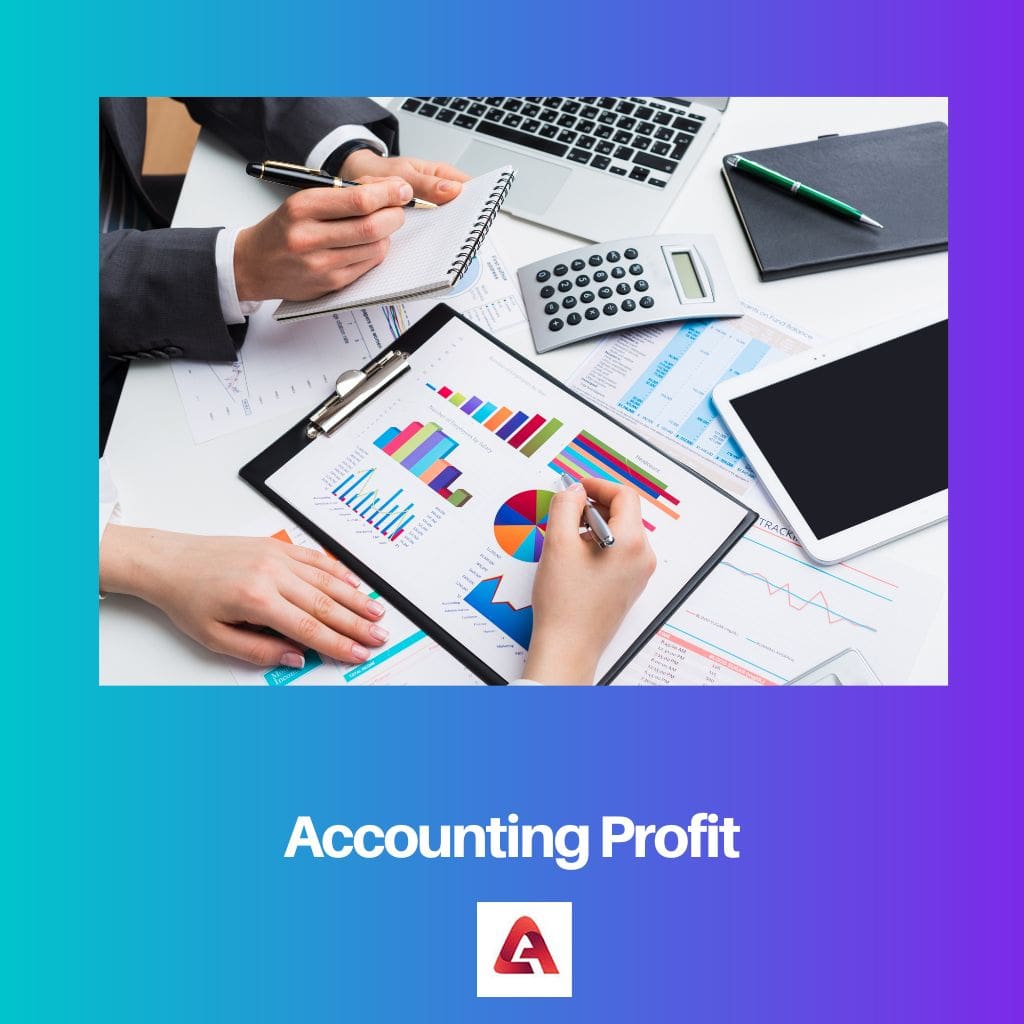
What is Accounting Profit? | Definition, Calculation, Pros vs Cons
Accounting profit is defined as a business’s net profit derived by deducting all the expenses and explicit costs from the revenue. To calculate Accounting profit, the standards set by Generally …

What is Perpetuity? | Definition, Working, Advantages vs Disadvantages
The term ‘perpetuity’ means what the word suggests – a never-ending cash flow of a certain amount that goes on for an unspecified or unending period. It is, in essence, …
EBIT vs PBIT: Difference and Comparison
EBIT (Earnings Before Interest and Taxes) refers to a company’s operating profit before deducting interest and taxes, providing insight into its operational efficiency. PBIT (Profit Before Interest and Taxes) is …
Invoice vs Statement: Difference and Comparison
An invoice is a document issued by a seller to a buyer, detailing the products or services provided, their quantities, prices, and payment terms, sent after a purchase. A statement, …

What is Bin Card? | Definition, Uses, Pros vs Cons
Also known as a bin tag or stock card, Bin Card is the statement or report of the issue and receipt of the stocks from a retailing business’s store department. …
Stripe vs Authorize.net: Difference and Comparison
Buying and selling products and services has found a home online, and these processes are now called e-commerce. However, regarding the payment portion of these transactions, one gets two options, …

What is Macroeconomics? | Definition, Pros vs Cons
As a branch of knowledge, Economics is concerned with observing, analysing and predicting human behaviour based on the distribution of scarce resources. This discipline aims to ascertain the allocation of …

What is Microeconomics? | Definition, Theories, Pros vs Cons
Economics, as a branch of knowledge, is concerned with studying human behaviour based on the allotment of scarce resources such that the producers can maximise their profits, consumers can maximise …

What is Fire Insurance? | Definition, Working, Pros vs Cons
Fire is a dangerous element that everyone deals with in everyday life. Fire can obliterate anything in minutes, whether a house, office, or industrial infrastructure. The most unfortunate thing about …

What is Marine Insurance? | Definition, Working, Pros vs Cons
Transporting goods from one location to another has become a necessity of modern economics. As a result, transporters worldwide are sending and receiving packages all the time. The owner of …
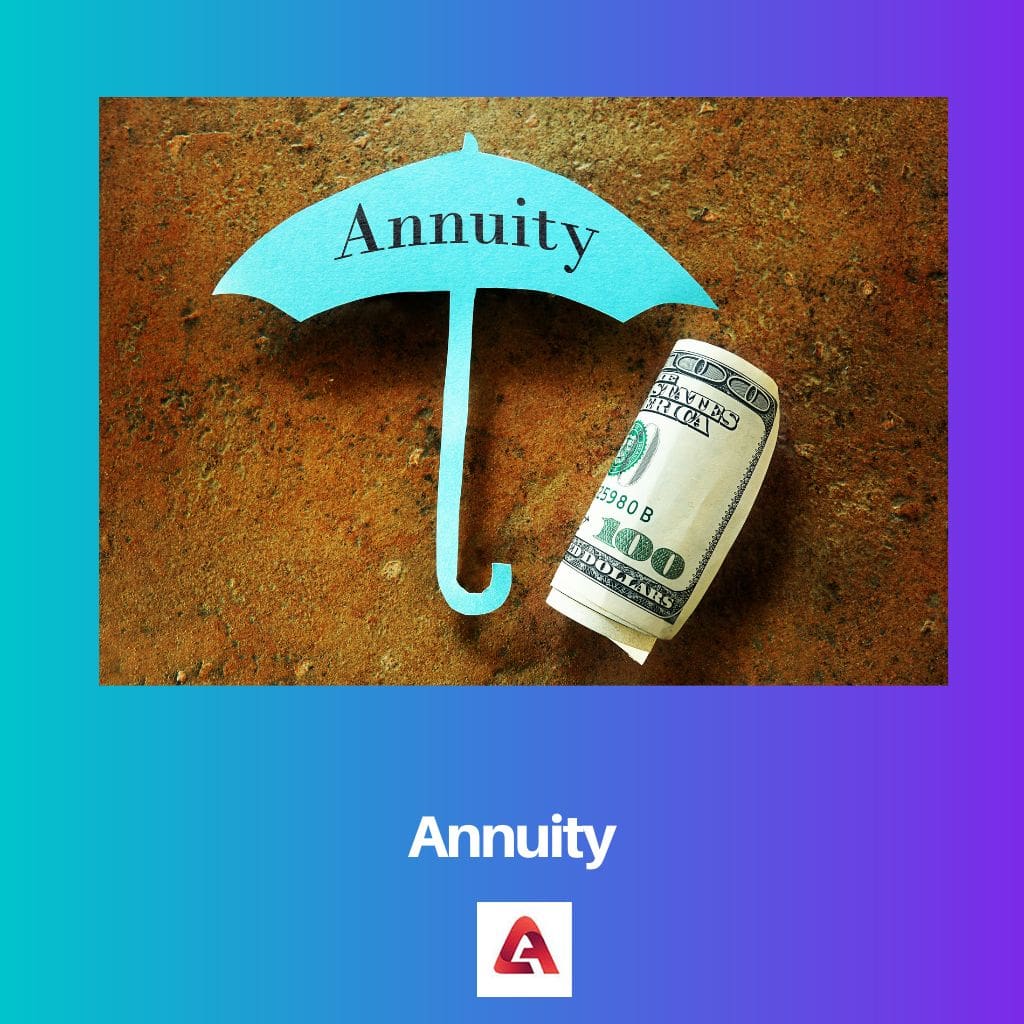
What is Annuity? | Definition, Types, Advantages vs Disadvantages
Annuity refers to a fixed payment made to a person regularly for any given period. It can also be seen as a kind of investment or insurance depending upon the …

What is ADR? | Definition, Types, Working, Pros vs Cons
Depository Receipts are an essential mechanism of raising capital for domestic companies from the international equity markets. They are primarily instruments of negotiation through which foreign investors purchase shares in …
TIN vs TAN: Difference and Comparison
Tax is a charge that is imposed on everyone in every country. Tax is a financial charge imposed and paid compulsorily by every taxpayer in a country. The government taxes …

What is Auditing? | Definition, History, Goals vs Working
Auditing, an essential accounting practice component, entails examining and inspecting an organisation’s activities, records and operations to ascertain compliance with the established or standard organisational framework and regulatory requirements. Despite …

What is the Automated Clearing House (ACH)? | Definition, Working, Types, vs Examples
The automated clearing house (ACH) is a type of wire transfer for capital transaction systems; it makes it easier to clear payments across the U.S. ACH is a type of …

What is a Developed Country? | Definition, Examples vs Characteristics
Developed countries have high per capita income, a longer life expectancy rate, a higher standard of living and other facts which point towards a person’s higher quality of life. Developed …

What is a Developing Country? | Definition, Examples vs Characteristics
Developing countries are those countries where agriculture is their primary industry, and they have low GDP (Gross Domestic Product) rates per capita. These countries are in the process of reaching …
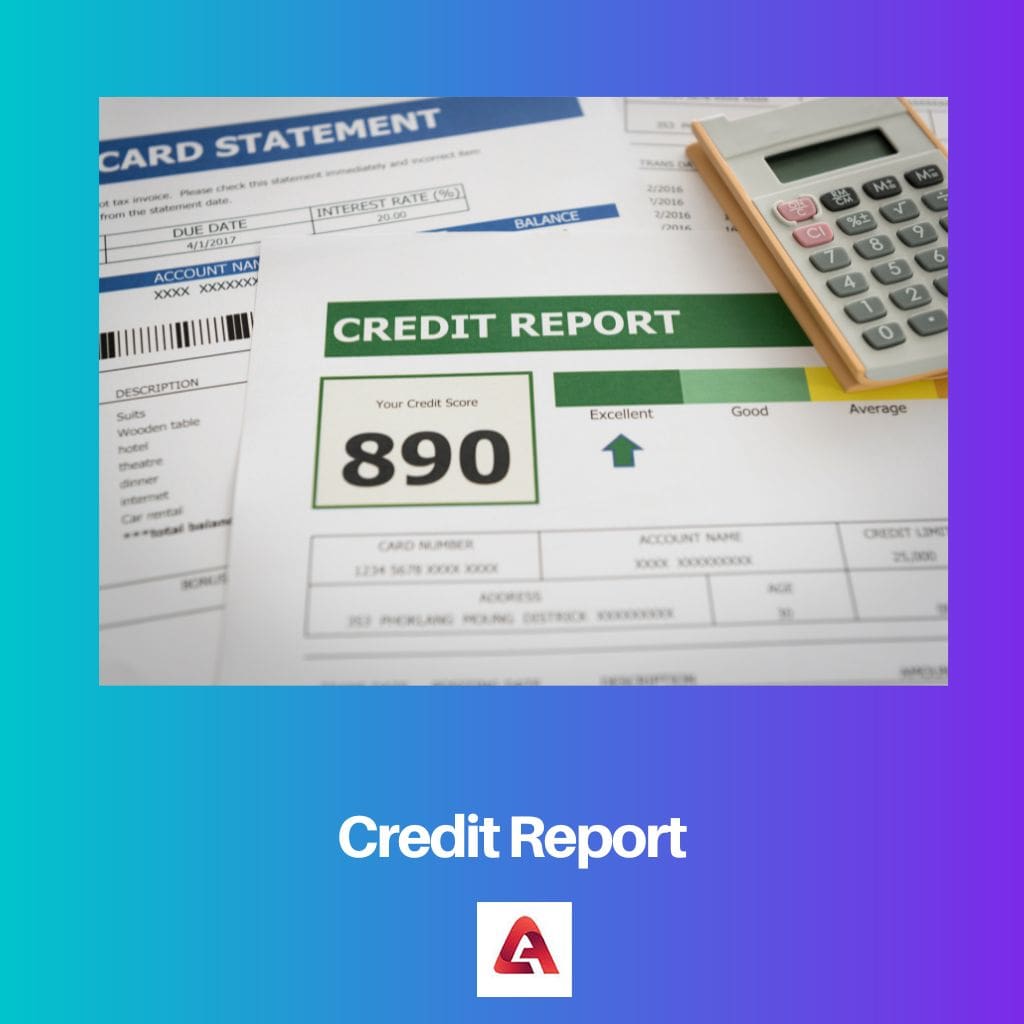
What is Credit Report? | Definition vs Credit Report Format
A credit Report is an individual’s record of repaying debt and history management. Usually, companies and lenders use this report to decide whether they will do business with you. They …

What is Long Term Capital Gain? | Definition, Working, Pros vs Cons
The crucial part of financial development for a person is the right investment strategy. Gaining financial prosperity without any investment is nearly impossible. Along with the investment amount, the investment …

What is Overdraft? Definition, Concepts, Pros vs Cons
Overdraft is a banking term that refers to withdrawing money from a bank account even after no money is left. Usually, an overdraft facility is provided to the customer when …

What is Accounting Concept? Definition, Types, Advantages vs Disadvantages
The term refers to the overall guidelines, conditions, and accepted norms that help set the parameters and standardize accounting practices. These universally accepted principles form the basis and foundation of …

What is Accounting Convention? Definition, Types, Pros vs Cons
The accepted guidelines and standards followed while recording business transactions are known as accounting conventions. These conventions are not legalized practices set in stone but are commonly followed when dealing …

What is Review? | Definition, Process, Pros vs Cons
Organisations resort to periodic audits to verify the condition of their financial health and operations. However, not all organisations can afford to bear the expenses of periodic audits. Nor do …
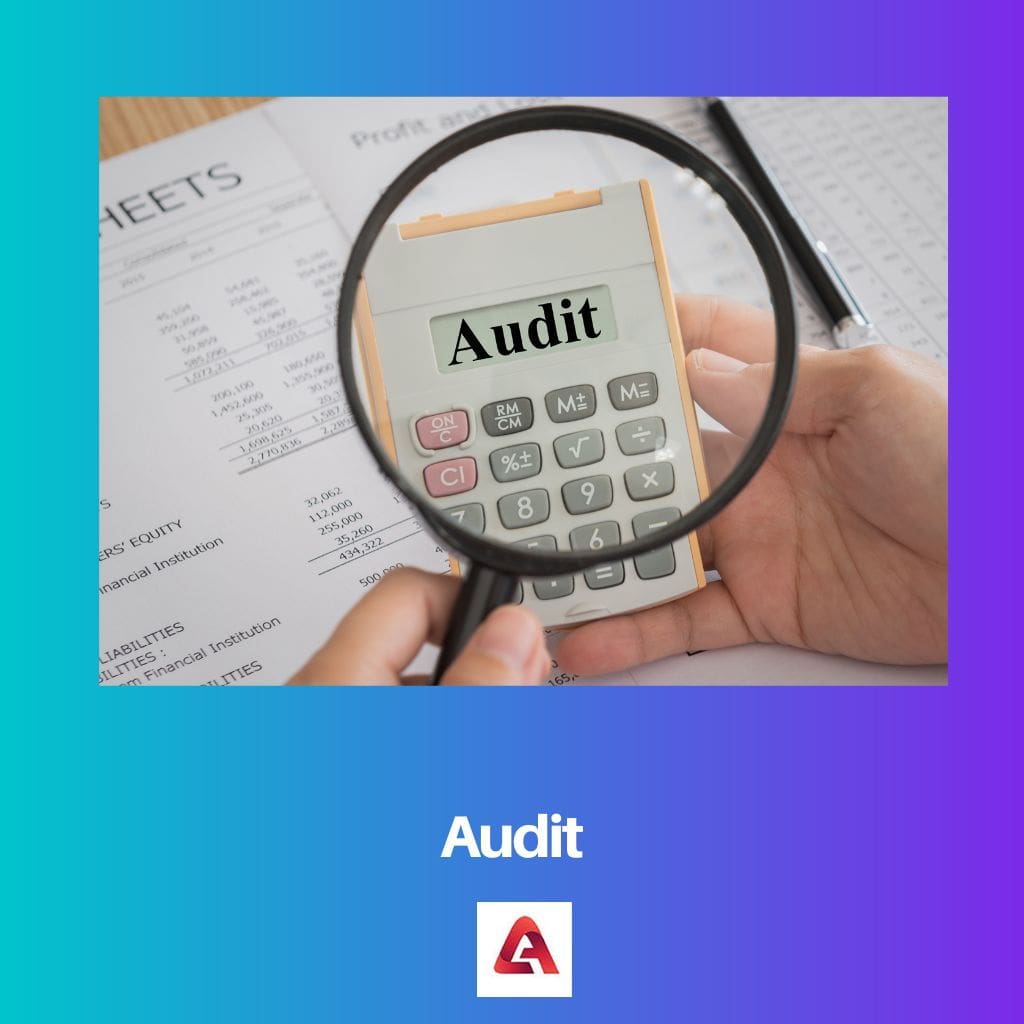
What is Audit? | Definition, Types, Objectives vs Complete Process
An audit is an objective inspection or examination of various financial reports and accounts of an organisation, regardless of its legal form and size, by an auditor. The organisation may …

What is a Credit Score? | Definition, Check Score, Maintaining Good Credit Score
A credit score is based on analysing a person’s creditworthiness derived from a credit report. It is a numerical expression based on the information gained from the credit bureau. Credit …
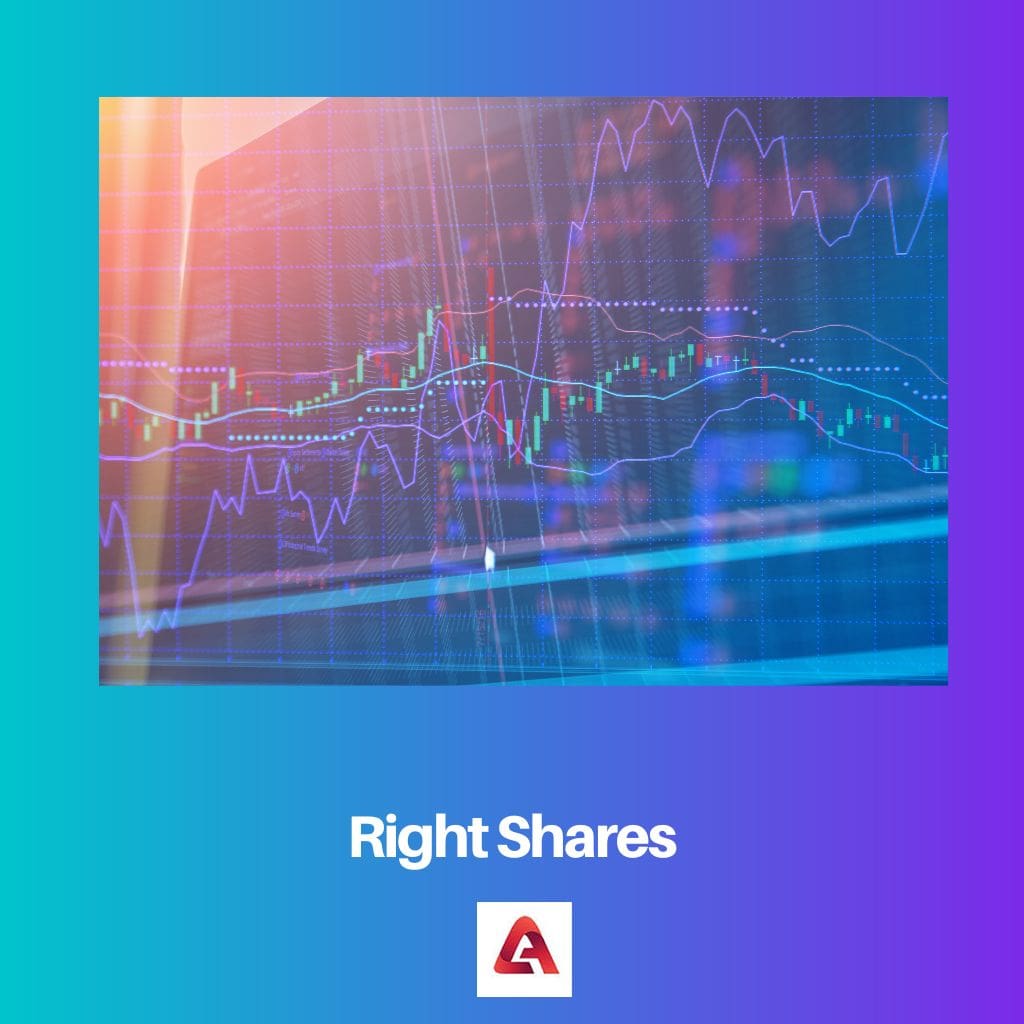
What are Right Shares? | Definition, Types, Issue, Pros vs Cons
When it comes to raising capital, companies take various corporate actions. One of them is offering rights shares to their shareholders.A rights share, also known as a Rights issue, is …

What is GST? | Definition, Working, Constituents, Rates, Pros vs Cons
GST, short form for the Goods and Services Tax, is an indirect tax charged on selling services and goods meant for consumption in the domestic market. As a tax regime, …
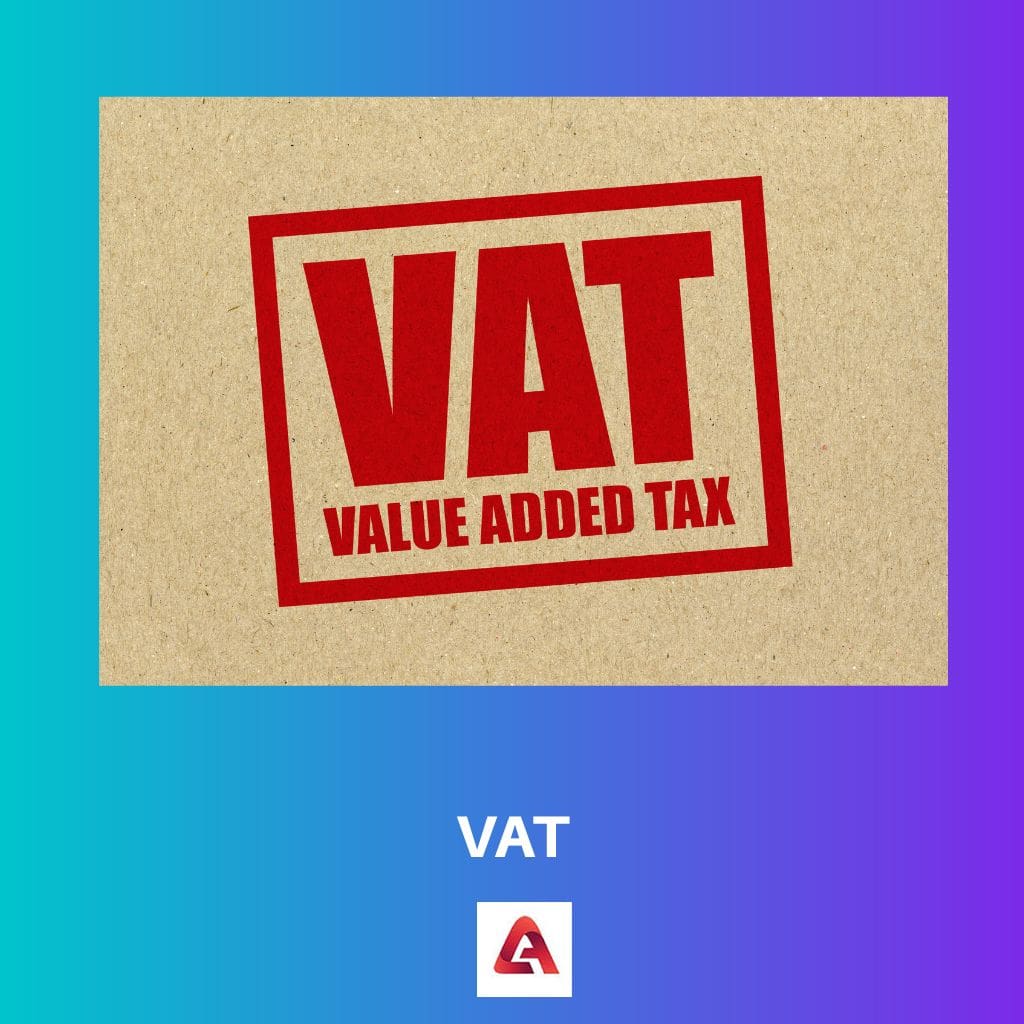
What is VAT? | Definition, Working, Types, Advantages vs Disadvantages
Taxes are one of the earliest as well as predominant sources of revenue generation for governments all over the world. Without taxes, it is almost impossible for governments to meet …

What are Hedge Funds? | History, Working, Pros vs Cons
The market is full of opportunities for people who have an idea and wish to monetize it. The only thing needed is funding; fortunately, the market has plenty of investment …
UGMA vs UTMA: Difference and Comparison
UGMA (Uniform Gift to Minors Act) and UTMA (Uniform Transfers to Minors Act) are both laws that allow adults to transfer assets to minors without the need for a formal …

What is Trading? | Types, Advantages vs Disadvantages
From the beginning of mankind, humans are exchanging goods and services with each other for survival. Around the world, this activity is known as trading. It is a surprising fact …

What is Investing? | Goals, Advantages vs Disadvantages
Investment is an essential way of achieving prosperity and development. It is an essential activity for wealth creation. Investing in the right business can bring prosperity quickly. However, there are …
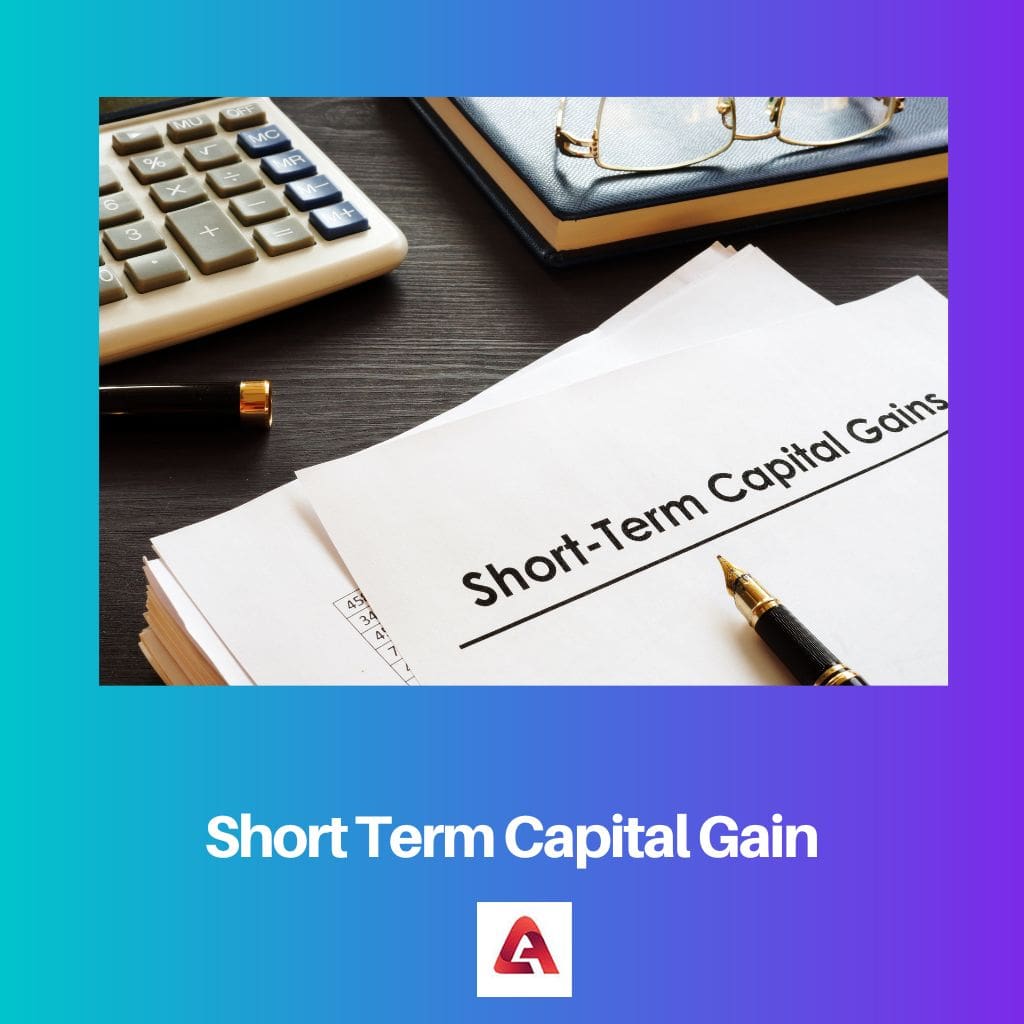
What is Short Term Capital Gain? | Concept, Pros vs Cons
The reason behind every investment is financial gain. For this reason, investors put their money into different capital investments. They do some investments for the long term and some for …
Opportunity Cost vs Trade Off: Difference and Comparison
Opportunity cost and Trade are terms we come across when we have decisions to make in the financial arena of our business. For both the concepts of opportunity cost and …
CIMA vs ACMA: Difference and Comparison
Over the years, management accounting has become very important to any institution since it provides information that may prove to be crucial in the decision-making process for the performance of …
Maestro Card vs MasterCard: Difference and Comparison
MasterCard and Maestro’s cards are both bank cards that are issued by MasterCard Incorporation, which is one of the most popular brands of bank cards all across the globe. They …
Single vs Double Entry Bookkeeping System: Difference and Comparison
Keeping track of expenses is essential; it could also be in the form of an entry system that is recorded in journals or books, titled bookkeeping. Bookkeeping is pivotal in …
CML vs SML: Difference and Comparison
When entering the business world, you are expected to follow a set of terms, rules, agenda and strategy if you want to have a flourishing business. There are technicalities and …
Pound vs Euro: Difference and Comparison
In our everyday lives, money holds a substantial prestige and significance bigger than any other asset. Together, there is a total of 180 currencies in the world originating from different countries. …
Dharma vs Karma: Difference and Comparison
Indian mythology has several beliefs like Hinduism, Buddhism, Jainism, etc… Although every religion and belief advocates a few core principles for a human society, which will lead to a path …
Capitalism vs Mercantilism: Difference and Comparison
When we dig deep into the topic of capitalism and mercantilism, we consider how many businesses in the present-day capitalistic economy go by the same principle mercantilists had. Therefore, since …
VAT vs CST: Difference and Comparison
Taxation is a complicated subject. Taxes are categorized into direct taxes and indirect taxes. Direct Tax is the tax people directly pay to the government, such as income tax. There …
Forex vs Stock Market: Difference and Comparison
Investment is a financial growth strategy practiced worldwide and in numerous different markets. Generally, it means buying into an asset, such that you own a portion of a representation of …
Direct vs Indirect Expenses: Difference and Comparison
Direct and indirect expenses are two different accounting terms that represent a business’s expenditure. Both direct expenses and indirect expenses are performed for the convenience of maintaining accuracy in the …
Expense vs Expenditure: Difference and Comparison
The terms “expense” and “expenditure” are confused due to the similarity in their definitions. Expense vs. Expenditure The difference between expense and expenditure is that the former is used when …
Public vs Private Finance: Difference and Comparison
Capital funding is critical for any trade and plays a vital role in every division. It is awarded by certain companies and financial institutions based on the demand from the …
Tax Planning vs Tax Management: Difference and Comparison
Taxes are financial charges imposed by the government to fund the public sector and meet other expenses. Countries and economic systems have independent tax systems. Failing to pay taxes is …
Trading Account vs Profit and Loss Account: Difference and Comparison
Commercial gain or profit is the most critical component for anyone engaging in business. This is one of the most crucial factors determining the economic viability of any business. Businesses …
Previous Year vs Assessment Year: Difference and Comparison
While creating databases for various reasons or specifically for Income Tax records, the period is a must. The period plays a vital role in setting limits to data and having …
Pre-Shipment vs Post-Shipment Finance: Difference and Comparison
Consumer transaction is a never-ending process in the world. People require essential and non-essential things for their living and survival every day. Trading involves financial requirements at every stage. Especially …
Macroeconomics vs Managerial Economics: Difference and Comparison
Economics is the branch of social science that finds its usage in day-to-day life. It deals with concepts related to profit, production, consumption and distribution of goods and resources. Macroeconomics …
Turnover vs Revenue: Difference and Comparison
Turnover and revenue are used interchangeably, but they can have nuanced differences. Revenue refers to the total income generated from sales of goods or services. On the other hand, turnover …
Right Shares vs ESOP: Difference and Comparison
Rights Shares and Employee Stock Ownership Plans (ESOPs) are different equity instruments used by companies. Rights Shares are offered to existing shareholders at a discounted price to raise capital, while …
Mortgage vs Merchant Bank: Difference and Comparison
A mortgage is a loan specifically for purchasing real estate, where the property serves as collateral. It is provided by a financial institution, like a bank. On the other hand, …
Merchant Bank vs Private Equity: Difference and Comparison
Merchant banks primarily engage in providing financial services such as advisory, capital raising, and risk management to corporations, while private equity firms specialize in investing capital directly into private companies, …
Market vs Command Economy: Difference and Comparison
Market Economy: In a market economy, decisions regarding production, distribution, and pricing are driven by the forces of supply and demand. Private individuals and businesses make choices based on market …
Marine vs Life Insurance: Difference and Comparison
Marine insurance primarily covers risks associated with maritime activities, safeguarding against damage or loss of ships, cargo, and related liabilities. On the other hand, life insurance provides financial protection to …
Marine vs Hull insurance: Difference and Comparison
Marine insurance covers risks associated with the transportation of goods over water, including damage or loss of cargo, while hull insurance specifically focuses on protecting the vessel itself from physical …
Marine vs Aviation Insurance: Difference and Comparison
Marine insurance provides coverage for risks related to the transportation of goods and vessels over water, offering protection against perils like sinking, piracy, and collisions. On the other hand, aviation …
Management vs Cost Accounting: Difference and Comparison
Management accounting focuses on providing internal information to support managerial decision-making, budgeting, and performance analysis within an organization. In contrast, cost accounting specifically deals with the identification, measurement, and analysis …
Loan vs Finance: Difference and Comparison
A loan involves borrowing a specific amount of money from a lender and repaying it with interest over a predetermined period. Finance, on the other hand, is a broader term …
Loan vs Bond: Difference and Comparison
A loan is a direct borrowing arrangement between a borrower and a lender, a financial institution, where the borrower receives a lump sum and repays it with interest over a …
Life Assurance vs Fire Insurance: Difference and Comparison
Life assurance provides financial protection in the event of the policyholder’s death, offering a payout to beneficiaries. Fire insurance, on the other hand, covers damages or losses to property caused …
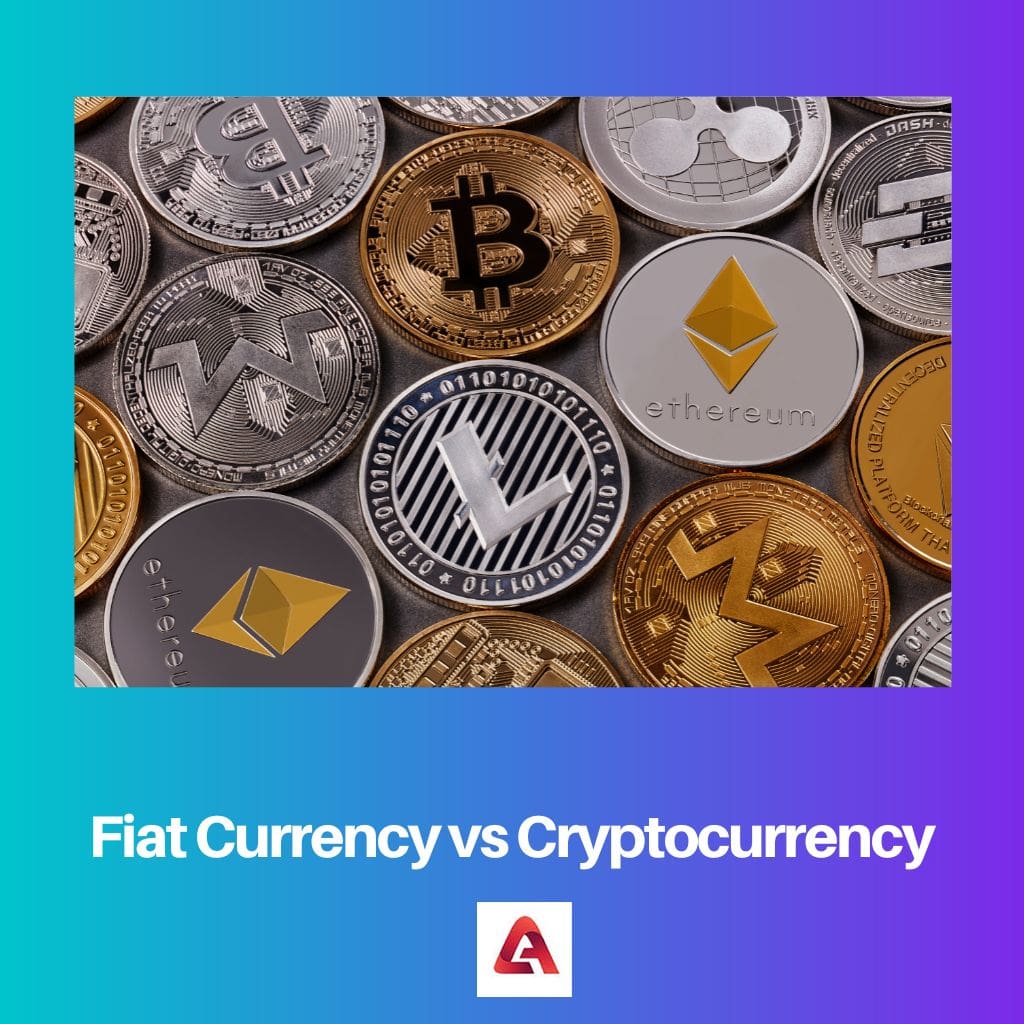
Fiat Currency vs Cryptocurrency: Difference and Comparison
Fiat currency, backed by governments, relies on centralized authorities for issuance and regulation, offering stability but vulnerable to inflation and manipulation. Cryptocurrency, decentralized and based on blockchain technology, offers transparency, …
Fundamental vs Technical Analysis: Difference and Comparison
Fundamental analysis assesses a company’s intrinsic value based on financials and economic factors, while technical analysis focuses on price patterns and market psychology using charts and indicators. Both methods aim …
GDR vs FCCB: Difference and Comparison
GDRs (Global Depositary Receipts) represent shares of a foreign company traded on international markets, enabling global investment. FCCBs (Foreign Currency Convertible Bonds) are debt instruments issued by foreign companies, convertible …
Gross Total Income vs Total Income: Difference and Comparison
Gross Total Income refers to the total income earned before any deductions or exemptions are applied, including all sources of income such as salaries, rental income, interest, and dividends. Total …
Hedge Fund vs Mutual Fund: Difference and Comparison
Hedge funds are private investment funds catering to accredited investors, employing diverse strategies like short selling and leverage to seek high returns, with higher fees. Mutual funds are publicly available …
Horizontal vs Vertical Analysis: Difference and Comparison
Horizontal analysis involves comparing financial data over a period of time to track changes in performance, revealing trends and patterns. Vertical analysis, on the other hand, examines the proportions of …
Internal vs External Economies of Scale: Difference and Comparison
Internal economies of scale result from cost savings within a firm as it expands, such as increased specialization and efficient resource utilization. External economies of scale occur when multiple firms …
Investment Bank vs Brokerage Firm: Difference and Comparison
An investment bank primarily engages in complex financial transactions, including mergers and acquisitions, capital raising, and advisory services for corporations. In contrast, a brokerage firm focuses on facilitating securities transactions …
Letter of Credit vs Bills of Exchange: Difference and Comparison
A Letter of Credit (LC) is a financial document issued by a bank, guaranteeing payment to a seller upon presentation of specified documents, ensuring a secure international trade transaction. On …
Letter of Credit vs Buyers Credit: Difference and Comparison
Letter of Credit (LC): A financial instrument issued by a bank on behalf of a buyer, assuring the seller that payment will be made upon the fulfillment of specified conditions, …
Letter of Credit vs Documentary Collection: Difference and Comparison
Letter of Credit (L/C): A financial instrument issued by a bank, ensuring payment to the seller upon fulfillment of specified conditions, providing a secure method for international trade transactions. Documentary …
Letter of Credit vs Line of Credit: Difference and Comparison
A Letter of Credit (LC) is a financial document issued by a bank on behalf of a buyer, guaranteeing payment to the seller upon the presentation of specified documents. It …
Economics vs Economy: Difference and Comparison
Economics refers to the study of how individuals, businesses, and governments allocate resources to satisfy unlimited wants in a society, encompassing theories, principles, and policies. On the other hand, the …
Dividend vs Interest: Difference and Comparison
Dividends are distributions of a company’s profits to its shareholders, paid out of earnings. They represent a share of ownership in the company and are paid periodically. On the other …
Credit Score vs Mortgage Score: Difference and Comparison
A credit score is a numeric representation of a borrower’s creditworthiness based on their credit history, while a mortgage score is a specialized version tailored specifically for assessing mortgage loan …
Developing Countries vs Emerging Markets: Difference and Comparison
Developing countries refer to nations with lower income levels, characterized by inadequate infrastructure and basic services. Emerging markets, on the other hand, denote countries with rapidly growing economies, transitioning towards …
Developing vs Least Developed Countries: Difference and Comparison
Developing countries exhibit moderate to high levels of industrialization and economic growth, with significant infrastructure development and access to technology, but still face challenges such as poverty, inequality, and limited …
Fire Insurance vs Life Insurance: Difference and Comparison
Fire insurance protects against financial loss due to damage or destruction of property from fire-related incidents, offering compensation for repair or replacement. Life insurance provides financial protection to beneficiaries in …
Credit Report vs FICO: Difference and Comparison
A credit report is a detailed record of an individual’s credit history, including accounts, payment history, and inquiries, provided by credit bureaus. FICO score, on the other hand, is a …
Audit vs Non-Audit Services: Difference and Comparison
Financial analysis and reporting are the essences of a modern business. They are decision-making tools that help the industry see a snapshot of the company’s financial position. Financial auditing examines …
Costing vs Cost Accounting: Difference and Comparison
Costing refers to the process of estimating the total expenditure involved in producing a product or providing a service, focusing on direct costs such as materials and labor. Cost accounting, …
Letter of Credit vs Letter of Undertaking: Difference and Comparison
A Letter of Credit is a financial document issued by a bank guaranteeing a buyer’s payment to a seller if certain criteria are met. On the other hand, a Letter …
Assessable Profit vs Taxable Profit: Difference and Comparison
Assessable profit refers to the income calculated according to tax laws, adjusted for certain deductions or exemptions, and serves as the basis for determining tax liability. Taxable profit, on the …
Credit Score vs Credit Limit: Difference and Comparison
A credit score reflects a person’s creditworthiness based on their credit history, while a credit limit is the maximum amount of credit a lender extends to an individual. While a …
Audit vs Inspection: Difference and Comparison
An audit is a systematic review and evaluation of processes, procedures, or systems to ensure compliance with standards or regulations, conducted by an independent party. On the other hand, an …
Trading vs Demat Account: Difference and Comparison
A trading account enables you to buy and sell financial instruments like stocks, commodities, and currencies in the market. A Demat account, on the other hand, is like a digital …
Hedge Fund vs Managed Fund: Difference and Comparison
A hedge fund employs aggressive investment strategies, utilizing leverage and derivatives, to generate high returns for sophisticated investors, while a managed fund follows a more diversified approach, aiming to provide …
Private vs Public Equity: Difference and Comparison
Private equity involves investing in private companies that are not publicly traded on stock exchanges, aiming for significant ownership stakes and actively managing them to increase value before exiting. Public …
Accounting Concepts vs Accounting Principles: Difference and Comparison
Accounting concepts refer to the fundamental assumptions underlying the preparation of financial statements, such as going concern, consistency, and accruals. Accounting principles, on the other hand, are specific rules and …
VISA vs ESTA: Difference and Comparison
VISA is a formal document granting entry permission to a specific country, obtained through an embassy or consulate. ESTA (Electronic System for Travel Authorization) is an automated system that allows …
Debt vs Equity: Difference and Comparison
Debt represents borrowed funds that need to be repaid with interest, offering a fixed obligation but risking financial strain. Equity signifies ownership in a company, involving no fixed repayment but …
Will vs Gift: Difference and Comparison
A will is a legal document specifying how an individual’s assets are to be distributed after their death, whereas a gift is a voluntary transfer of assets or property from …
Short Term vs Long Term Solvency Ratio: Difference and Comparison
Short-term solvency ratios, like the current ratio, assess a company’s ability to meet immediate obligations using current assets. Long-term solvency ratios, such as the debt-to-equity ratio, gauge a company’s ability …
Hedge Fund vs Investment Bank: Difference and Comparison
Hedge funds are investment vehicles that pool capital from accredited individuals or institutional investors, aiming to generate high returns through various strategies. Investment banks, on the other hand, provide financial …
Investing vs Buying Shares: Difference and Comparison
Investing involves a broader approach, encompassing various assets for long-term growth and income. Buying shares is a specific action within investing, focusing on ownership in a particular company, potentially offering …
Overdraft vs Credit Card: Difference and Comparison
Overdraft provides a temporary negative balance in a bank account, with higher interest rates. A credit card allows borrowing up to a predefined limit, with interest charged on the outstanding …
Depreciation vs Amortization: Difference and Comparison
Depreciation is the allocation of tangible asset costs over its useful life, for physical items like machinery. Amortization, on the other hand, is the gradual expensing of intangible asset costs, …
Descriptive vs Inferential Statistics: Difference and Comparison
Descriptive statistics summarize and describe the main features of a dataset, providing simple and meaningful insights. Inferential statistics draw conclusions or make predictions about a population based on a sample …
Rich vs Wealthy: Difference and Comparison
“Rich” denotes a high income or substantial assets, accompanied by lavish spending habits. “Wealthy,” on the other hand, implies long-term financial stability and abundance of assets, allowing for sustained prosperity …
Stocks vs Bonds: Difference and Comparison
The two fundamental types of assets used in the portfolios are stocks and bonds. Stocks represent an equity interest in a business, while bonds are equivalent to debt to a …
Subsidized vs Unsubsidized Loans: Difference and Comparison
Education is much-needed wisdom for anyone. All need proper education to make this world a better place to live in. Education comes with a cost, and the cost, at times, …
401K vs 403B Retirement Plans: Difference and Comparison
401(k) and 403(b) retirement plans are similar in that they both allow employees to save for retirement on a tax-advantaged basis, but 401(k) plans are offered by for-profit companies while …
Assets vs Liabilities: Difference and Comparison
Assets are resources owned by an individual or entity that hold economic value, such as cash, investments, or property. They contribute to generating income or providing future benefits. In contrast, …
Balance Sheet vs Cash Flow Statement: Difference and Comparison
A balance sheet provides a snapshot of a company’s financial position at a specific time, showing its assets, liabilities, and equity. At the same time, a cash flow statement tracks …
Accounting, Economic vs Normal Profit: Difference and Comparison
Accounting profit is the difference between total revenue and explicit costs, including operating expenses. In contrast, economic profit considers explicit and implicit costs, including the opportunity cost of resources used. …
Accounting vs Auditing: Difference and Comparison
Accounting involves the systematic recording, analysis, and reporting of financial transactions and information to provide an accurate and comprehensive view of an organization’s financial health. Auditing, on the other hand, …
Fire Insurance vs Marine Insurance: Difference and Comparison
Fire insurance covers damages and losses caused by fires, to property and assets on land. Marine insurance, on the other hand, offers coverage for risks associated with the transportation of …
Right vs Bonus Shares: Difference and Comparison
Rights shares are offered to existing shareholders at a discounted price to raise additional capital. In contrast, bonus shares are free shares issued to existing shareholders in proportion to their …
Audit vs Review: Difference and Comparison
An audit involves a comprehensive examination of financial statements and internal controls to express an opinion on their fairness. A review is a less extensive assessment that provides limited assurance, …
Private Equity vs Hedge Fund: Difference and Comparison
Private equity firms invest in private companies, acquiring a controlling stake to drive operational improvements and increase value over the long term, through buyouts or venture capital investments. Hedge funds, …
Accounting Concept vs Convention: Difference and Comparison
Accounting concepts are fundamental principles that guide the preparation of financial statements, such as the accrual concept, which states that transactions should be recorded when they occur, not necessarily when …
Short Term vs Long Term Capital Gain: Difference and Comparison
Short-term capital gains are profits earned from selling assets held for one year or less, subject to higher tax rates based on the individual’s ordinary income tax bracket. In contrast, …
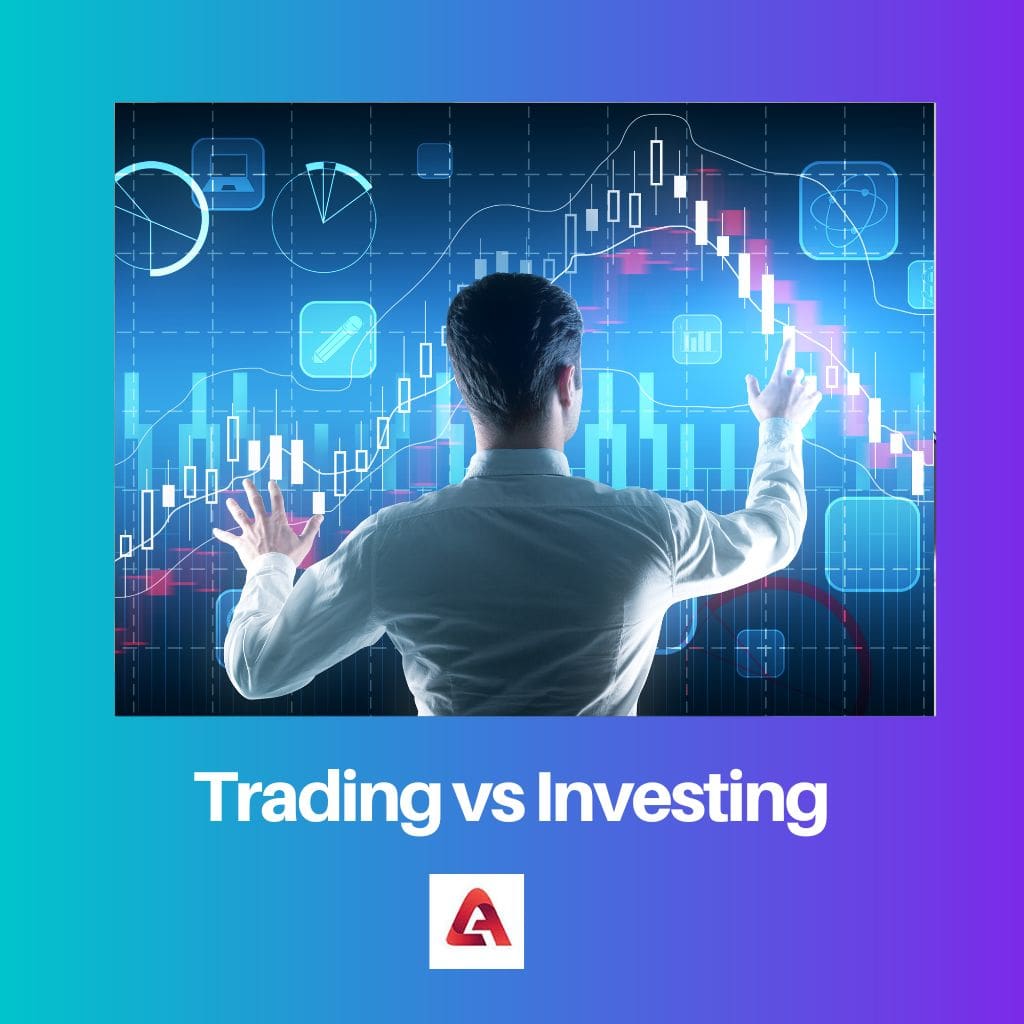
Trading vs Investing: Difference and Comparison
Trading involves frequent buying and selling of financial assets to profit from short-term price fluctuations, relying on technical analysis and market timing. It demands active monitoring and quick decision-making. Investing, …
